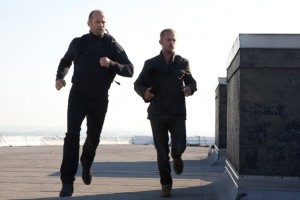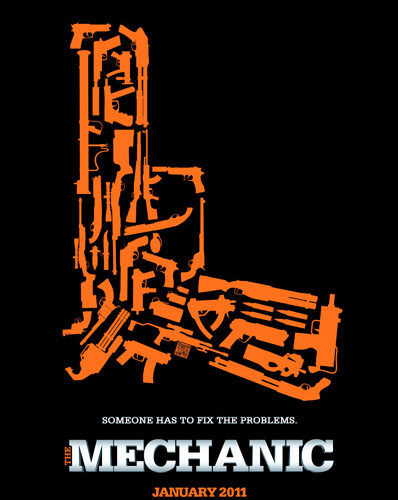
The Mechanic is a professionally-made product: we’ve been sold a Jason Statham action film; CBS Films and Simon West have delivered. So what?
West’s first film was the legendary (at least for those growing up in the 90’s) Con Air: a big, fun Jerry Bruckheimer action piece with wit and energy, something The Mechanic lacks in abundance. A step above the B-movies I grew up watching over the summer in the wee morning hours of HBO (often those films starred Lou Diamond Phillips, Mario Van Peebles and Rae Dawn Chong), The Mechanic suffers from the same problem as the over-bloated action flick The Expendables – what’s missing is a reason to care. Great kill shots are fun, but there’s little else. This may have been a flaw in the source text, in which case West‘s version has not succeeded as a remake of the 1972 film of the same name, starring Charles Bronson.
Statham is his trademark badass self. This time his name’s Arthur Bishop – not that it matters much. He’s good at kicking ass and taking names. Maybe when he’s older he’ll do a quiet Mike Leigh movie, but for now he’s the number one name in guilty pleasure B-grade action movies. Bishop is a Mechanic, a hired gun who takes out bad people for a price. In the opening scene he drowns a stock Latin American bad guy/arms dealer/drug dealer in his huge indoor pool.
Then it’s back to New Orleans to a life of isolation (you can’t be a Mechanic, someone emotionally disconnected from humanity, and be in a fully committed monogamous relationship – this isn’t Spy Kids after all). Because he’s not gay, like another Mechanic we meet later in the film, there are prostitutes. Everyone has their price, right?
Bishop is set up to kill the man that brought him into the business. The job will be done, if not by him then by someone else. He complies, shooting Harry McKenna (Donald Sutherland). His aimless son, Steve (Ben Foster), vows revenge and comes close to killing a random car jacker thanks to this rage. Part of being a Mechanic is making things look natural or at least misleading to the extent that you can. It’s believed Harry died in an attempted car jacking, so, of course, he was not killed in a car jacking. Foster teams with Bishop to learn the ways of The Mechanic, which are more dazzling and action-packed yet less exciting than Jim Jarmusch’s meditation on assassination in Ghost Dog: The Way of the Samurai.
So much of this film is stock and off-the-shelf – professionally delivered but what should be relegated to HBO 3AM B-movie stuff. Three words: direct-to-video. It doesn’t answer a question I’ve always wish action movies asked: if your boss is killed, why risk your life chasing the killer? Are the benefits including what I’d hope would be life insurance for your loved ones really worth it? In a corporate retail setting don’t they tell you not to risk your life in an armed robbery? I’m just saying.


